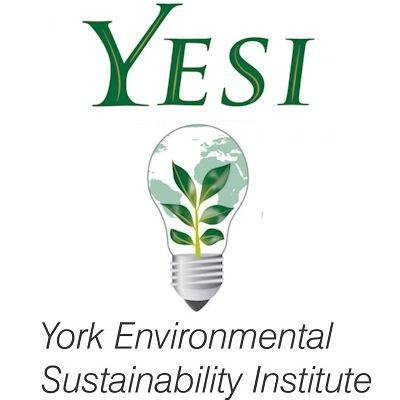It feels like a challenging time to be working on environmental issues here in the United States as a wave of populism and climate change denial seems to be sweeping the country. To gain some perspective on working toward sustainability goals, I spoke with Professor Sue Hartley. Professor Hartley is the Director of the York Environmental Sustainability Institute (YESI) and the current President of the British Ecological Society (BES). We talked about her work leading YESI, and what she sees for the future of sustainability globally and in Britain.
The York Environmental Sustainability Institute 
YESI was founded at the University of York to help bring researchers out of their disciplinary silos to collaborate on work related to environmental sustainability. As Director, Professor Hartley decides on focus areas for YESI with her colleagues and recruits new researchers. She focuses on challenges that would benefit from an interdisciplinary approach, since that is YESI’s real strength and what she feels will drive innovation and development of real solutions in the future. She also tries to keep her eye on what the latest research developments are in the field of sustainability to help decide what to work on next.

Leadership
When I asked Professor Hartley about her leadership role and what she thinks are important skills to be successful, she stated that having a clear vision of what she wants to achieve is the first step. Next is understanding how to persuade other people to work hard toward that vision with her. She finds that strategy is important for this; setting goals and making plans for how to achieve them makes it easier to get others on board. Strategic thinking is a skill people in environmental fields here in the US are working on too, coming up with concrete, achievable steps that will eventually lead to a more sustainable planet.
To be an effective leader, the ability to delegate is the skill Professor Hartley says she uses the most. She points out that it’s tricky but important to balance giving space and trusting people to work with remaining involved enough to be supportive and helpful. Professor Hartley is also committed to listening to her staff, especially when they bring strengths to bear that she might not have. This ability to listen is another thing we all need to work on as many voters in the U.K., U.S., and potentially France and Germany feel ignored or left behind. If we want them to work with us, they have to believe their ideas and concerns are being heard.
 Research
Research
Next, we talked about research priorities at YESI. Climate change and resilience is one of the three research themes that Professor Hartley feels are going to grow as challenges in the future. She commented that many people, despite believing in climate change, have a very hard time making the jump to doing something about it. She spoke of how complex the problem is because it has impacts both globally and locally, and that politics, science, and economics all need to come together to make progress toward resilience. Being able to make the economic and political arguments that work is a lesson that resonates globally.
The other two current research topics Professor Hartley raised are urbanization, especially in the global south, and sustainable food systems. Millions of people are streaming into cities, and their health and the health of the environment depend on managing urban growth in an environmentally responsible way. Sustainable food systems not only feed people but take into account the impact of transportation, waste, and how climate change will affect agriculture.

While scientific research is essential to the mission of YESI, it is also important to get the word out. For all three issues she raised, Professor Hartley believes that learning how to educate people in a way that will change behavior and inspire them to make sustainable choices is important to making progress. To do that, YESI hosts lectures and symposia, has recently updated its website, and frequently hosts or participates in public events.
Politics
In her role as Director, Professor Hartley has recently testified about sustainable agriculture, environmental protection, and other issues before select committees of Parliament. It seems from our conversation that Professor Hartley has more faith in the U.K. governments’ consideration of science than I do in ours. Of course, politics are imperfect and some recent developments—especially around Brexit—concern her, but Professor Hartley does believe that YESI and other researchers doing the best research can lead to people making the best, most informed choices.
Another interesting way that YESI influences the political conversation is by writing “Research Excellence Framework” (REF) documents. These documents are produced by all universities in the U.K. and describe the work they do and its impact, highlighting specific case studies. Professor Hartley explained that this process often brings cases and issues to the attention of politicians who otherwise may not be informed of the work academics are doing.
The National Science Foundation (NSF) here in the U.S. does ask grant applicants to explain what the impact of their work will be, but there isn’t much tracking or reporting on it after the award. It seems the REF gets much more attention and respect, and maybe we can learn from this process as scientists look for better ways to advocate to the public and politicians about their work.
Moving Forward
The combination of working to inform policy through multidisciplinary research and outreach and education make Professor Hartley and YESI great resources for developing a more sustainable world. I am sure Professor Hartley’s work will lead to greater knowledge about challenges we face, and hopefully people here in the U.S. can learn from YESI’s research and develop tools to shift our behavior toward greater environmental responsibility and sustainability.

